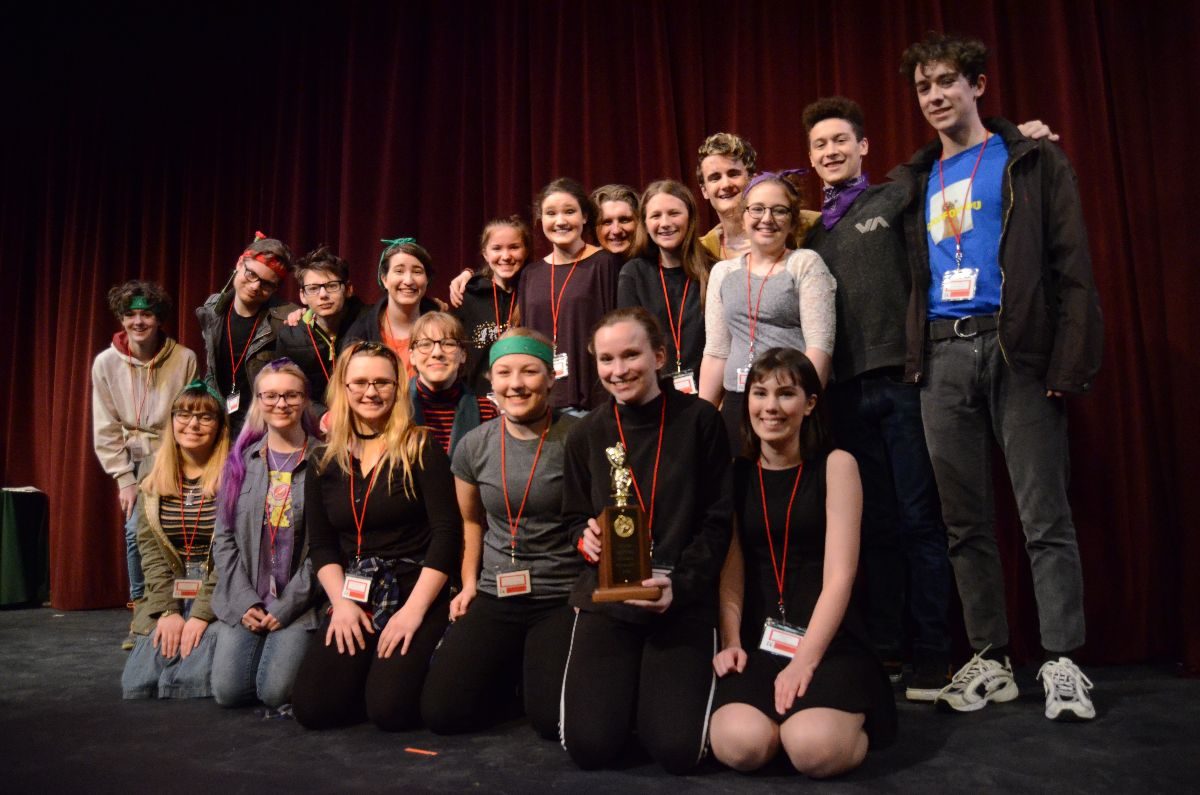The Case FOR Theatre Competition and Festivals
Liz Lydic
Actual Questions:
- As adults, is it 'cool' to hate competitive theatre festivals and events? Is it in our moral DNA to say it's not right to judge art?' Does our stance change if we are also thrilled by it, and would we have a different point of view if we were the ones winning?
- Does a stance on it keep anyone from signing up to watch junior high and high school kids pump out chair-slamming, self-conscious-but-also-raw Shakespeare scenes in hot classrooms on a random Saturday morning? Do you say you're against it, but still participate because you can earn $60 and, even though it's an ethical dilemma, you can still 'make a difference'?
- Does a stance on it keep you from sending in $10.00 to a church/school/local or pro group so you can deliver a monologue (or two! contrasting!) in their annual competition, where maybe someone will see you and change your life, or at least you can say you won?
- Does a stance on it make you less likely to whoop for joy and feel on a temporary total high if your scene/show/selection is called out during an awards ceremony after the theatre-y people have written notes in clipboards, convened in a room, then by some long-standing process, agreed to award you and your fellow competitors? (you and your fellow competitors who - had your name not been called, could begin the justifying about it all - how the judges weren't qualified, the space wasn't right, the program was new or lame or clubhouse-y or nepotistic or unorganized or somehow laid the groundwork for what you could also label as 'wasn't meant to be.').
Consider yourself at a time in your life where the stakes were high on things or events you now look at with amusement and embarrassment.
Consider yourself on a brink in your life. At the line, the one that divides then and now, before and after.
Ellsworth High School took home first place for its performance of “The Secret in the Wings” at the 2018 Maine State Drama Festival’s Class B regional competition. Photo: Chris Dougherty
Consider that this time in your life could be anytime, not just as a youth but now, as an adult, as someone with more experience in your pocket, but still capable, willing and dare I say enthusiastic about participating in a competition.
Perhaps when we criticize the concept of the competitiveness of theatre it's simply because we are not the ones competing, or because we are only on the losing side of it.
Forget about the awards and the deflation and the empty plates of Costco turkey pinwheels from the banquet. Remember instead the getting there. The pursuit. The trying. The, ahem, pardon me while I gag on this over-used word...journey.
Is not most of what we do a competition, judged by folks who may or may not be qualified to 'judge' our subjective efforts? If it's not for this, do we still strive? Isn't it part of making us care about what we do? Do not the experiences of 'being judged' and seen from those we believe know more than we do build us up, even if momentarily we are brought down?
If you are critical specifically of the process of a youth or educational competitions, see if what you are really feeling is jealousy. It may take the form of jaded-ness, mixed with the uncomfortable recognition of the even more uncomfortable time in your life that is likely history.
But that uncomfortable time in your life might have been something...special. Certainly, it was important to you. It was very, very important to you, and it meant a lot. It took over your thoughts, and it was dominated by excited anticipation instead of pessimistic negative assumptions. It was really not unlike you now, but it was desperate: not in a time-is-running-out-what's-this-all-about-way, but in a this-is-all-that-matters-and-it's-awesome-way.
If judging and participating in competitions is not your thing, no problem. If it is, and you are the competitor, enjoy those moments of total importance again, and don't let a defeat damage or alter what it meant to you getting there. If you do sign up to be on the judgmental side of the table, don't worry if it's right or wrong to be there; give the people you are there for everything you've got. They are clearly doing the same for you. Don't act as if their gift is your presence because it's probably the other way around.
